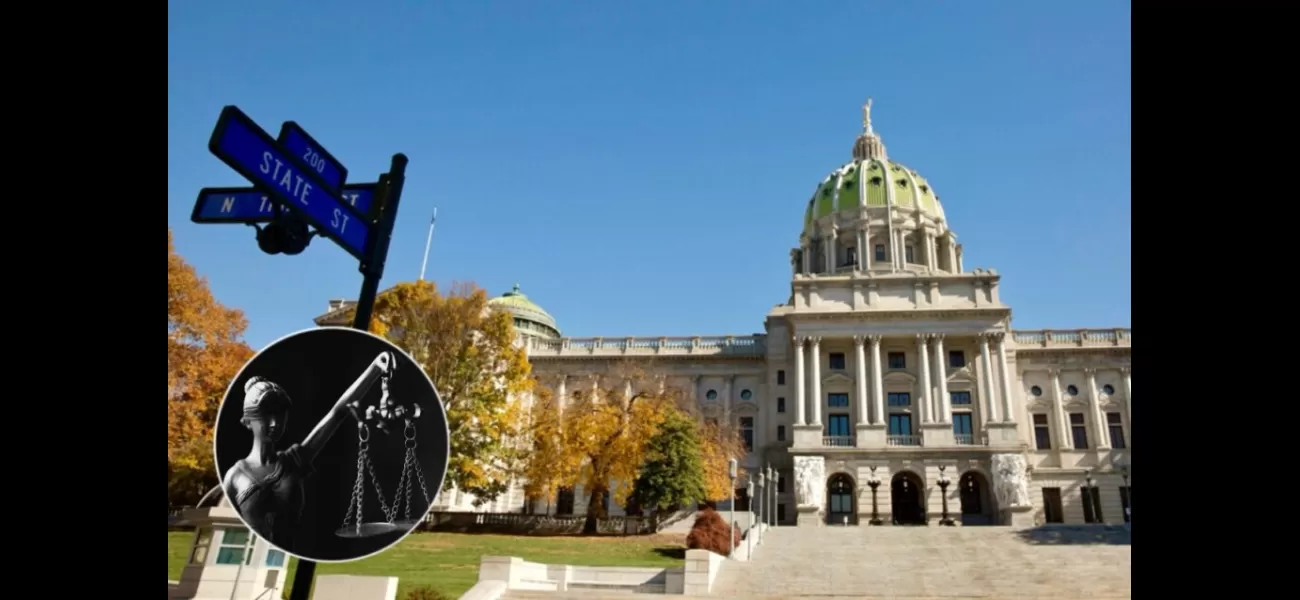The family of a black teenager who was executed in 1931 is suing the state of Pennsylvania.
Williams' family's belief in his innocence ultimately resulted in his 2022 conviction being overturned.
May 21st 2024.

The tragic story of Alexander McClay Williams, a 16-year-old Black boy who was executed in 1931, continues to haunt his family. Recently, they filed a lawsuit against Pennsylvania and Delaware County for his wrongful death. Williams, who is still the youngest person ever to be executed in the state, was accused and convicted of killing 34-year-old Vida Robare. However, new evidence has emerged that suggests Williams may have been innocent all along.
According to NBC News, Williams was coerced into confessing to the brutal stabbing of Robare, with prosecutors ignoring any other potential suspects. This included Robare's recently divorced husband, Fred, who also happened to work at the same school as her. It was revealed that their marriage had ended due to Fred's extreme cruelty, which raises questions about his potential involvement in the crime. Surprisingly, no witnesses ever placed Williams near the scene of the crime, and it was actually Fred who discovered Robare's body.
Sadly, despite the lack of evidence, Williams was still executed on June 8, 1931. His family never gave up hope of proving his innocence, and their persistence paid off when his conviction was finally vacated in 2022. Even though it has been over 90 years since Williams' death, his record was officially expunged in 2017. This has given his family a glimmer of hope that they may finally receive the justice they have been seeking for so long.
The decision to dismiss Williams' charges posthumously was met with widespread support, including from Delaware County District Attorney Jack Stollsteimer. He acknowledged the injustice that was carried out during Williams' trial, stating that while they cannot change the past, it is important to publicly acknowledge and address such wrongdoings. This has given the Williams family some closure, but they still hope to seek punitive damages as a form of retribution for the racism and injustice that ultimately led to Williams' death.
Sadly, Williams' case is just one of many examples of racism within the capital punishment system. According to the Death Penalty Information Center, over half of all wrongfully convicted death-row exonerees are Black. The National Black Caucus of State Legislators has even deemed the death penalty as a tool of injustice and discrimination, highlighting the ongoing issue of racial disparities within the criminal justice system. Even though nearly a century has passed since Williams' execution, the impact of his unjust death continues to be felt by his family and the Black community as a whole.
According to NBC News, Williams was coerced into confessing to the brutal stabbing of Robare, with prosecutors ignoring any other potential suspects. This included Robare's recently divorced husband, Fred, who also happened to work at the same school as her. It was revealed that their marriage had ended due to Fred's extreme cruelty, which raises questions about his potential involvement in the crime. Surprisingly, no witnesses ever placed Williams near the scene of the crime, and it was actually Fred who discovered Robare's body.
Sadly, despite the lack of evidence, Williams was still executed on June 8, 1931. His family never gave up hope of proving his innocence, and their persistence paid off when his conviction was finally vacated in 2022. Even though it has been over 90 years since Williams' death, his record was officially expunged in 2017. This has given his family a glimmer of hope that they may finally receive the justice they have been seeking for so long.
The decision to dismiss Williams' charges posthumously was met with widespread support, including from Delaware County District Attorney Jack Stollsteimer. He acknowledged the injustice that was carried out during Williams' trial, stating that while they cannot change the past, it is important to publicly acknowledge and address such wrongdoings. This has given the Williams family some closure, but they still hope to seek punitive damages as a form of retribution for the racism and injustice that ultimately led to Williams' death.
Sadly, Williams' case is just one of many examples of racism within the capital punishment system. According to the Death Penalty Information Center, over half of all wrongfully convicted death-row exonerees are Black. The National Black Caucus of State Legislators has even deemed the death penalty as a tool of injustice and discrimination, highlighting the ongoing issue of racial disparities within the criminal justice system. Even though nearly a century has passed since Williams' execution, the impact of his unjust death continues to be felt by his family and the Black community as a whole.
[This article has been trending online recently and has been generated with AI. Your feed is customized.]
[Generative AI is experimental.]
0
0
Submit Comment





